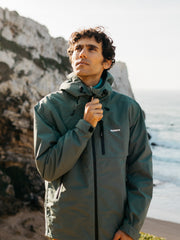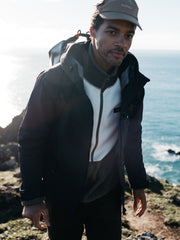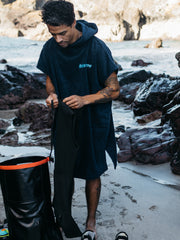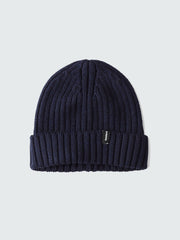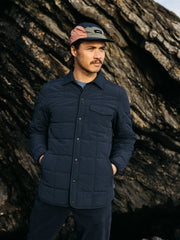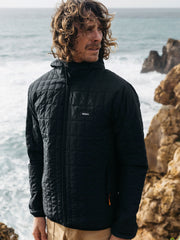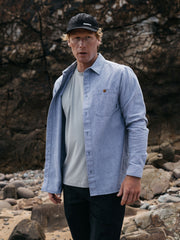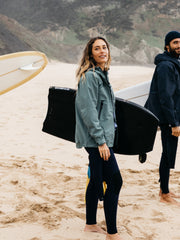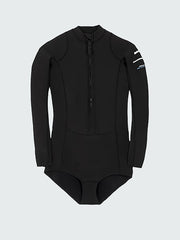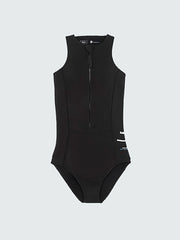Interestingly, acclimatising to the difficult conditions of Antarctica can sometimes be easier than when you return to society. With first-hand experience comes a fresh perspective and going back to normal life can be harder than you might think. “This is something I’ve found coming back from remote places, like Antarctica, it’s hard to adjust when you come back...” For Lucia though, this also presents an opportunity, “I think that’s when it becomes your duty to help educate other people and share your experience because I think you do have an obligation to do that in whatever manner or whatever voice you can.” It’s an important point to make, and the driving force behind this series, for both Lucia and Finisterre. “You could be the most talented artist or explorer, but unless you have a voice to share it with then no-one’s going to hear you.”
Just as we are packing up to say our goodbyes Lucia jumps back into her chair and opens her laptop again with a broad smile on her face. “Just as a surfing story on this,” she begins, as I quickly hit record again to capture her thoughts, “there is this one place in Antarctica with this glacier where, because of the way the water hits the land, if you get a particularly big calving event, it forms this perfect little wave!”
“It’s pretty cool,” she continues, the memory stoking her enthusiasm at the end of our long conversation. “Once I saw this really big calving and it produced an amazing wrap-around wave onto the rocky island that was adjacent to the glacier. It was this perfectly clean 2-3 foot wave.”
She checks herself, reigning in the enthusiasm, “Actually, when you are on an expedition those things can be very detrimental, so there’s a lot of safety that goes on around it. But from a surfers point of view I was digging it! And the funny thing is, you’re not with surfers,” she laughs at the panic that was caused by the little wave. “They’re all going, ‘aaahhhh, tsunami!’, while I’m just sat wishing I was out there surfing it!”




